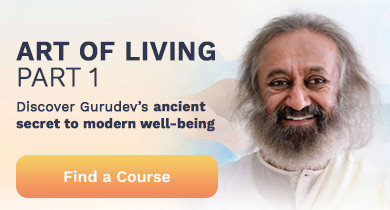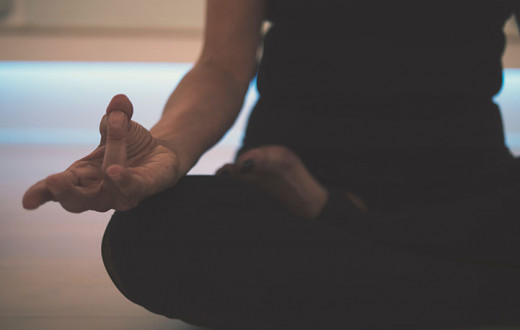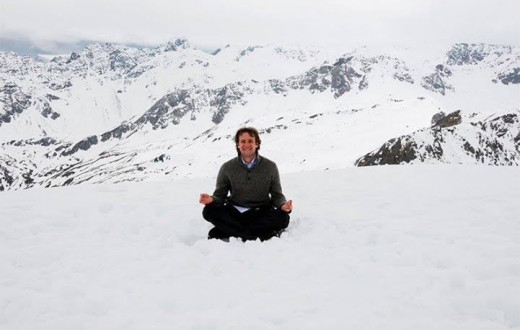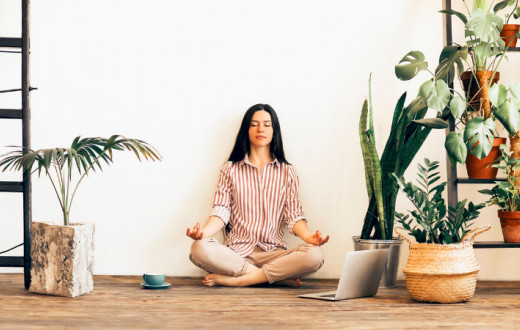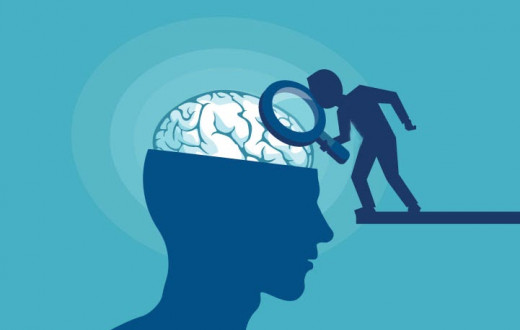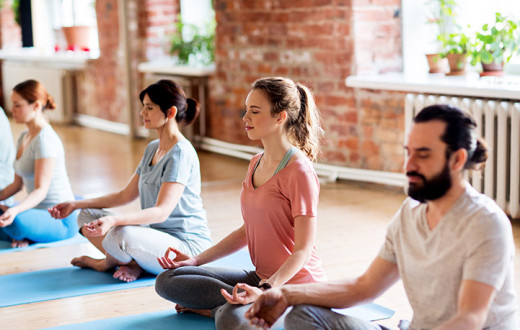By Elizabeth Herman | Posted: May 22, 2020
The world has been changing rapidly since the pandemic of COVID-19 began. When rapid changes happen in our lives, responses of fear and insecurity often result. Anxiety can happen along with bouts of depression, which currently impacts 16 million adults in the U.S. Restlessness due to feeling scared can also disrupt our peace and happiness.
Symptoms of anxiety
Here are some easy to recognize ways that your fear may appear in the form of unmistakable physical and psychological symptoms:
Breathing fast
Getting dizzy
Difficulty concentrating
Stomach churning
Fast or irregular heart beat
Sweating profusely
Low appetite
Dry mouth
Tension or weakness in the muscles
Ways to relieve anxiety
By looking closely at our own habits, we can adjust our levels of fear, insecurity, and restlessness. Here are 6 suggestions for calming down your moods and reducing your levels of anxiety:
1. Avoid sugar, alcohol, and caffeine. In the short run, giving up addictive substances that tend to bring on mood swings can feel painful, but living without them brings untold benefits in the long run. For instance, drinking alcohol may seem to relax and please you in fleeting moments, but in actuality you are inviting anxiety-producing effects that happen after each binge on booze. Processed sweeteners may give you brief pleasure, but they make your blood sugar drop, causing fearful feelings. Caffeine from tea and coffee can also make you more anxious.
2. Laugh. Humor provides a wonderful tonic. Since the pandemic began, the prescription of 2-3 minutes of laughter per day has proved helpful to many, both while working from home and on the front lines. Dr. Julia Breur asserts that laughter can result in resolved conflicts, stronger bonds with others, reduced tensions, and more resilience in the face of disappointing events.
3. Walk in the outdoors. When you go outside, fresh air circulates around you and surrounds you with oxygen. Walking vigorously makes your lungs and heart work more energetically to circulate blood in your body, and they do so in order to keep you moving, not in response to your fear. After a nice walk, the feelings of relaxation return naturally. Other forms of exercise work similarly to take your mind off of fear, but outdoor pursuits can be especially supportive of feelings of liveliness.
4. Practice yoga (asanas and pranayamas). Attending to your breath and body in specific ways through the breathing techniques (pranayamas) and physical postures (asanas) of yoga lifts your energy in ways that last throughout the many activities of the day. It only takes a few short minutes of practice to turn around your fears and make them disappear. For example, sun salutations in the morning can provide positive feelings that linger while facing other challenges. Whenever a panic attack starts to approach, you can go into alternate nostril or ujjayi breathing to calm your physiology, thus calming your mind as well.
5. Meditate. By constantly thinking about past events that make us angry or future possibilities that make us fearful, we multiply the emotional charge of happenings that aren’t part of our immediate experience of the present moment. The more we indulge in this tendency to fluctuate between past and future, the more exhausted we get and our protection from anxiety falters. Meditation encourages relaxation of such tiring thoughts and allows you to stop bouncing back and forth to get authentic rest and to train yourself to be and stay in a mental state of peace and stability.
6. Find ways to keep your mind off your fears. In moderation, distractions like phone calls with friends, pleasant television or music, and pets, etc., can bring relief from overthinking about how scared you may be. As the expression goes, “Too much of anything is bad.” But when your feelings of insecurity get out of control, a little bit of time on the lighter side of life can help to balance your worries with your delights. As Daniel Sher states, “By distracting yourself at appropriate times, you can encourage your mind to focus on things which are less likely to trigger your anxiety.”
To learn more about becoming naturally happier and gaining freedom from fear and insecurity, try the techniques offered in this new workshop: Beyond Breath - A Free Breath & Meditation Session - Online Session With a Live Instructor. You’ll be glad you did!
Elizabeth Herman writes, offers writing support to clients, teaches, and volunteers for a better world. She has a PhD in Rhetoric, Composition and Literature. Find her on Facebook or Twitter.
